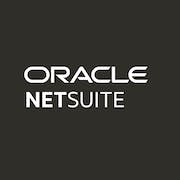Looking to find the best eCommerce software for your business? Check out our comprehensive buyer's guide featuring expert reviews, comparisons, and key features to help you make an informed decision.
As an online business owner, you want to maximize your sales potential and grow your customer base. One way to achieve this is by utilizing eCommerce software - an all-in-one solution that automates your business operations and streamlines your sales processes. Currently eCommerce sales constitute 9% of the overall retail sales. With a wide range of options flooding the market, it can be challenging to choose the best one for your business needs. The good news is that we've done the research for you and compiled a comprehensive guide to help you find the right solution. In this guide, we'll explore the features, benefits, and considerations you need to make when selecting this essential tool, so you can make an informed decision and take your business to the next level.
What is an eCommerce solution?
It is a technological solution that enables businesses to conduct their transactions online. This software integrates different aspects of online marketing, such as website design, inventory management, shipping, and payment processing. The beauty of it is that it allows retailers to sell their products 24/7 and to reach customers anywhere in the world. This has made ecommerce a highly popular option for businesses of all sizes. Ecommerce is growing, and according to DigitalCommerce360, U.S. Commerce sales have presented a 44% growth.
Its common use cases include:
- Online retailers - Selling physical goods directly to customers online.
- Digital goods providers - Selling digital goods such as software, eBooks, or music directly to customers.
- B2B transactions - Businesses selling products or services to other businesses on an ecommerce platform.
- Subscription-based services - Businesses providing a service that requires recurring monthly or yearly subscription fees, such as streaming services or online education platforms.
- Non-profit organizations - Accepting donations or selling merchandise through an ecommerce platform.
- Social commerce - Enabling businesses to sell their products directly on their social media platforms like Facebook and Instagram.
- Direct-to-consumer brands - Using ecommerce to bypass traditional retail channels and reach customers directly.
Types of businesses that use it include:
- Small to medium-sized enterprises looking to expand their customer base and reach beyond their physical location.
- Established brands looking to diversify their revenue streams and increase customer engagement in new markets.
- Non-profits seeking to raise funds without the need for a physical location.
- Startups looking for a low-cost entry point to selling their product without the need to invest in a physical storefront.
eCommerce software has revolutionized the way businesses interact with customers, and it has opened up countless new opportunities for companies of all sizes. The system is highly versatile, offering a range of use cases, from online retail to social commerce, making it an indispensable asset for companies that want to grow and thrive.
What are the benefits of using an eCommerce program?
Given the rapid shift towards online shopping, it is essential that businesses have an active digital presence to ensure increased sales and profitability. The right eCommerce solution can provide a business with numerous benefits, the most significant of which are highlighted below:
- Increased reach - It allows a business to reach a wider audience and sell products or services globally at any time of the day or night. This helps businesses to increase brand recognition, drive customer loyalty and user acquisition, and drive revenue growth.
- Cost-effectiveness - By using an eCommerce solution, businesses can save significant sums of money, including set-up and rental costs, staff labor, and maintenance expenses. This results in lower operational costs, making it more affordable to scale the business and drive profitability.
- Improved customer experience - It also provides businesses with the ability to offer customers a personalized shopping experience that caters to their individual needs. This includes features like recommendations, personalized notifications, and promotions. These can be used to foster customer loyalty and help businesses to remain competitive in the market.
- Streamlined inventory management - With an eCommerce system, inventory management becomes more efficient and streamlined, giving business owners a detailed view of their stock levels, increasing control over their inventory, and allowing them to restock popular items quickly. This can help to reduce the risk of stock shortages and increase product availability.
- Enhanced analytics - eCommerce software enables easy tracking of customer behavior and important metrics such as site visits, bounce rates, click-through rates, revenue generated, average order value, and conversion rates. These can provide critical insights into the business performance, which in turn helps businesses make informed decisions on marketing and product development strategies.
eCommerce software provides a business with a cost-effective, customer-centric, and streamlined way of conducting online transactions, which can boost revenue and drive profitability. As such, it is a critical and necessary investment for modern organizations looking to remain competitive.
10 key features of an eCommerce tool
In this section, we will discuss the 10 most common features of such a vital solution, helping you to better understand what to expect from these types of tools.
1. Storefronts:
It will typically provide a customizable online storefront where businesses can showcase their products to potential customers.
2. Shopping carts:
Shopping carts are essential components of eCommerce software environments, allowing customers to add items to their cart and providing a seamless checkout process.
3. Payment processing:
Secure payment processing is another key feature that enables corporations to accept payment from customers and ensures that customers’ payment details are protected.
4. Product catalogs:
eCommerce software tools give businesses the ability to maintain and manage product catalogs. This feature allows businesses to easily add, edit, or delete products from their online storefronts.
5. Inventory management:
As part of their feature set, eCommerce software often includes inventory management functions, which allow businesses to monitor their stock levels and ensure that popular products are always in stock.
6. Order management:
This system streamlines order management, letting businesses manage orders online, process orders, and keep customers up-to-date on the status of their orders.
7. Shipping integration:
Many eCommerce software programs offer integration with shipping carriers, allowing businesses to easily manage and track shipments and improve the customer experience by providing accurate delivery times.
8. Search functionality:
Robust search functionality enables customers to quickly find what they are looking for on your website, makes shopping easier, and enhances the overall customer experience.
9. Analytics and reporting:
An eCommerce platform often comes with robust analytics and reporting functionalities that help businesses track sales and customer data, identify potential areas for improvement, and develop better strategies for growth.
10. Mobile optimization:
It is critical to ensure that eCommerce software tools are mobile-optimized. This feature enhances the mobile shopping experience and makes it easier for customers to browse, shop, and checkout on their smartphones or tablets.
Things to consider when investing in an eCommerce solution
Having an online presence for your business is essential. As retail and commerce continue to shift towards the digital space, eCommerce has quickly become the go-to platform for most businesses. With the increasing popularity of eCommerce, there are now countless eCommerce software options available. In this article, we will explore the factors that businesses need to consider when purchasing eCommerce Software.
1. Platform flexibility
When looking for the right solution make sure to choose one that offers flexibility. Look for one that is compatible with multiple devices such as desktops, tablets and mobiles. This compatibility will ensure the greatest accessibility for your clients and ensure all areas of your website operate as they should despite the device being used to access them.
2. Payment processing
Selecting this tool with secure payment options and payment processing functionality is essential for businesses. A payment processing system that facilitates transactions using encrypted communications with both user and bank ensures security of personal and financial data.
3. Search engine optimization
Another key consideration when selecting it is its search engine optimization functionality. Search Engine Optimization (SEO) helps businesses gain visibility across search engines by making them more visible to potential customers. It is important that eCommerce software provides good SEO features to optimize the content on the website to rank higher on search engines.
4. Inventory management
Ecommerce software that comes with inventory management options is also an important consideration when choosing between different platforms. The ability to monitor product availability and stock levels enable adequate resource allocation and timely inventory reports for evaluation and forecasting.
5. Customer management and interaction
Customer support is essential for businesses, especially those that operate online. Make sure the one you choose provides customer management interface to manage the customer profiles, their purchasing habits and interactions. With these features, customers can easily place orders, have questions answered or make complaints.
6. Website security
Website security is paramount when it comes to this app, therefore, ensure that it has secure browsing and protection against digital threats. Do not compromise on a platform with weak security features as this could lead to harmful repercussions for the business and the customers who shop on the website.
Choosing the right eCommerce software will help businesses to grow and gain loyal customers. It's important to choose a platform that can handle the business's specific requirements, has functionalities suitable for your business model, and provides relevant features for the customers.
Industry trends for eCommerce software
As eCommerce continues to flourish, the industry is constantly evolving to keep up with new software trends.
- Social commerce is gaining traction, with popular social media channels becoming new sales platforms.
- Customer data privacy will be paramount, with emerging technologies and regulations to ensure customers' data isn't sold or misused.
- AI (artificial intelligence) will also play a critical role in product recommendations, predicting demand, and providing personalized online customer experiences.
- Payment processing will become faster and more secure with the adoption of blockchain technology.
- eCommerce platforms will focus on omnichannel selling, offering customers consistent shopping experiences across all sales channels.
The future of eCommerce software trends is exciting, and businesses need to prepare to adapt and stay ahead of the competition.
Conclusion
In summary, eCommerce technology has revolutionized the way businesses operate. Its multifaceted features empower merchants to establish and manage online stores efficiently, facilitating seamless transactions and enhancing customer experiences. From robust inventory management to secure payment gateways and advanced analytics, eCommerce systems offers a comprehensive solution for businesses of all sizes to thrive in the competitive online marketplace. As technology continues to evolve, staying abreast of emerging trends and continuously optimizing eCommerce software solutions will be imperative for businesses aiming to stay ahead.







